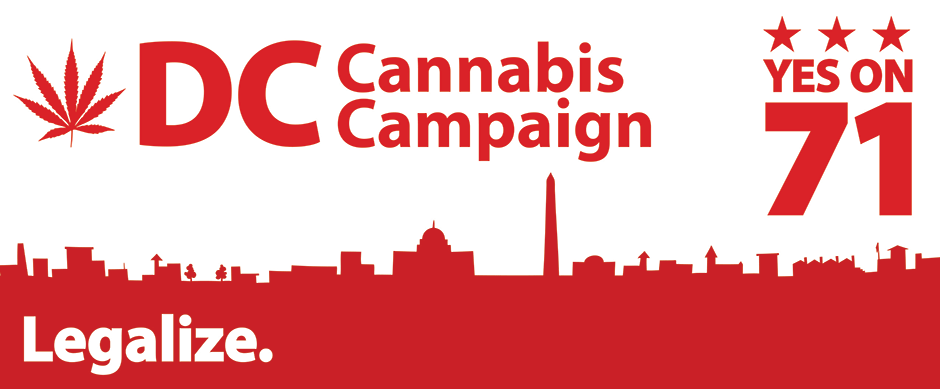How Will Congress Respond to Marijuana Legalization in the Nation's Capital?

It looks like Washingtonians approved marijuana legalization in the nation's capital by a margin of more than 2 to 1. With 29 percent of precincts reporting, the results are 69 percent in favor, 31 percent against. The lopsided vote, which is consistent with the most recent poll numbers, reflects a dramatic turnaround in black voters' views on legalization, apparently driven by concerns about marijuana prohibition's racially disproportionate impact.
Nationwide, according to a 2013 ACLU report, blacks are about four times as likely to be arrested for marijuana possession as whites, even though they are about equally likely to smoke pot. In D.C., blacks are eight times as likely to be busted for pot. D.C. also has a far higher marijuana arrest rate than any other jurisdiction in the country: 846 per 100,000 residents in 2010, compared to 535 in New York City (D.C.'s closest competitor) and a national average of 256.
Initiative 71 legalizes home cultivation of up to six plants by adults 21 or older, along with possession of up to two ounces and transfer of up to an ounce at a time "without remuneration." Residents who are not horticulturally inclined and do not have friends who are will be out of luck unless the D.C. Council approves a system for commercial production and distribution. The council heard testimony on that issue last week, and The Washington Post reports that "a majority…has vowed to also take up legislation early next year that would establish a system to sell and tax marijuana."
Whatever D.C. voters and legislators do can be undone by Congress, which has 30 days to overturn Initiative 71. Congress also can block Initiative 71 by forbidding D.C. to spend money on implementing it, as it did for years with the medical marijuana initiative that D.C. voters approved in 1998. One possibly hopeful sign: When the D.C. Council made possessing up to an ounce of marijuana a citable offense subject to a $25 fine earlier this year, Congress let the law take effect.
Rep. Andy Harris (R-Md.) responded with an amendment that would have barred the District from spending public money "to enact or carry out any law, rule, or regulation to legalize or otherwise reduce penalties associated with the possession, use, or distribution" of a controlled substance. The House approved Harris' amendment in June, but it was dropped from the final version of the spending bill. Harris said he would try again if Initiative 71 passed.
The Obama administration opposed the Harris amendment in language that suggests it would also oppose attempts to override Initiative 71: "The Administration strongly opposes the language in the bill preventing the District from using its own local funds to carry out locally passed marijuana policies, which…undermines the principles of States' rights and of District home rule." Today Sen. Rand Paul (R-Ky.) said D.C. should be free to set its own marijuana policy. It will be interesting to see how many Republicans agree with him.
On a related issue, the House last May approved an amendment aimed at stopping the Drug Enforcement Administration from undermining state laws allowing medical use of marijuana. The amendment, which explicitly applied to the District of Columbia, was introduced by Rep. Dana Rohrabacher (R-Calif.) and received votes from 49 Republicans as well as 170 Democrats.
Update: With 80 percent of precincts reporting, the breakdown remains the same, 69 percent in favor to 31 percent against.


Show Comments (3)